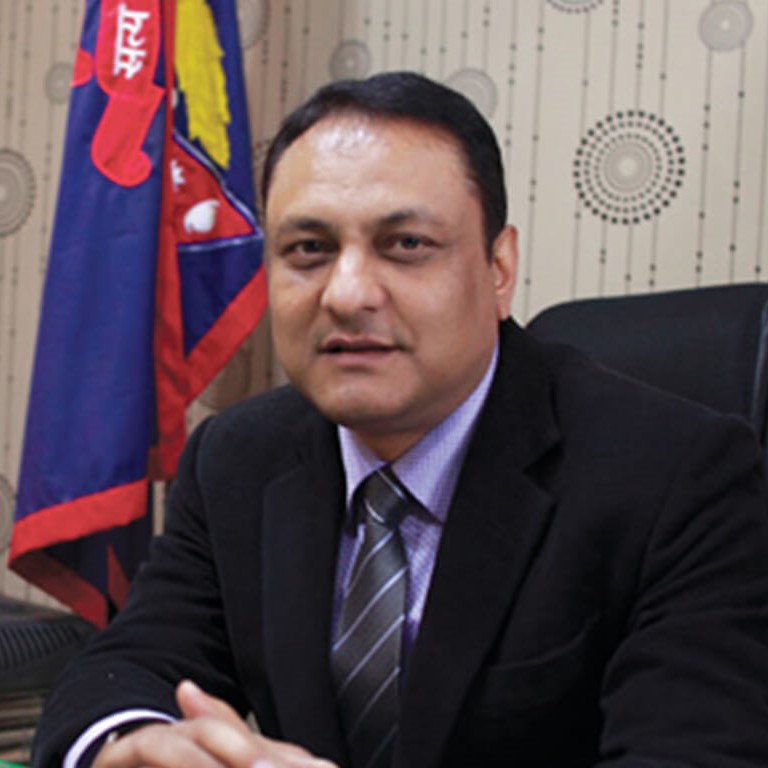Columns
Shared responsibility
Community Police Partnership can help the country deal with the coronavirus crisis.
Sarbendra Khanal
The novel coronavirus pandemic has given a tough time to societies across the world. Things have not been normal for months now. Nepal has lost 22 lives to the virus while over 8,600 have been infected. The government is readying for the arrival of hundreds of thousands of migrant workers from different countries.
The open border with India and the entry of hordes of people is already a huge threat. Health care centres and hospitals do not have adequate facilities, and people have lost jobs or sources of income. Peace and order in society could be disturbed. The results could be a nightmare, particularly if we fail to identify and prioritise issues and address them in time. At such a time, it is important to draw the attention of the state and the authorities concerned to the Community-Police Partnership (CPP) programme—a mechanism that can greatly help manage the impending situation.
Mixed history
The Nepal Police, officially formed in 1955, has its own saga of struggles. In the quest of polishing or modernising, the agency often replicated policing techniques and theories copied or borrowed from others. However, since we lacked an original policing model that matched our unique social fabric, topography and resources (or the absence thereof), the police had a hard time performing their duties while the community hardly ever appreciated their efforts. It is not untrue that politics dominates the institution. The shadow of this unfortunate practice can certainly become obvious at times. But even when the police have delivered with utmost honesty and commitment, winning the trust of the people has been an elusive goal.
A mechanism that could make the police resourceful, dignified and appreciated had always been my concern since I joined the force 31 years ago. Bridging the gap between the police and the community, and ensuring their shared responsibility for a safe and civilised society was the quest. After I became the head of the institution in 2018, the pain that was felt and the work of many officers gave birth to CPP. Many soon got trained and took this programme to the nooks and corners of the country, while partnering with local actors.
In just a few months, the Nepal Police reported accelerated rates of crime control and prevention. Local bodies were found to take an interest in contributing to security-related equipment and infrastructure. Dozens of CCTV cameras and other instruments have been installed in different towns and cities of the country, which have become instrumental in analysing cases and identifying the perpetrators.
The structure has well-defined roles and space for all major stakeholders of society. Not only do the ward members, chairpersons and unit police chiefs work closely, the partnership has ensured better bonding with school students, social organisations and civil society. While regular meetings and public hearings are likely to make the responsible actors accountable and keep each other quite connected, the police get to develop their own leadership skills as they have to conduct programmes at the local level. Community Police Partnership is a paradigm shift in policing.
Although the programme has worked remarkably well since October 2018, the CPP could not draw the attention of the local media then. Instead, some actors were bent on smearing this programme. After shouldering the responsibility as the chief, among the toughest challenges was dismantling the party of brokers and agents who were siphoning resources and ruining the system. When the illegal sources of income were blocked and they felt the pinch, the dissatisfaction of such groups spilled out in different forms.
The police of rich and powerful countries who have access to ultramodern equipment, technologies and adequate facilities have also not been able to maintain peace and order effectively. The high crime rates in some of the top cities in the world are testimony to this. This shows that crime cannot be fought by security agencies or technologies alone. The essence of the CPP lies here, where you make the community and the police work together for a safe and secure society.
CPP also reflects the analysis of the post-conflict experiences of different nations, international practices of the United Nations, and studies of comparative policing in the neighbourhood and elsewhere. Overall, CPP is a quest towards making a civilised and participatory society. Since it is not yet matured and has remained in the shadow for some time now, it needs added protection and nurturing.
Currently, the security forces have been working tirelessly to contain the menace of Covid-19. However, lapses are apparent. For instance, uncontrolled mobility at the border is a glaring example. Quarantine systems are poorly managed. Coordination and communication does not look impressive. CPP commands well-coordinated mobilisation of not just the police, but also of enough volunteers and people's representatives. This can greatly help address the chaos at the local units.
Under the Community-Police Partnership programme, ambulance services, quarantines and hospitals could be better managed. As the mechanism systematically links higher authorities with the grassroots, any confusions can more easily be sorted out. We have 6,344 community police ward committees, 7,944 community police tol committees and 751 local units, among others, in all 77 districts. It is the high time the mechanism was made aggressively functional.
Volatile situation
An economy in shambles is bad for peace and stability. Robberies and lootings may soon follow the disease crisis—unless the government brings effective measures to satisfy the poorest in society. Again, the burden of battling this crisis has to be shouldered mainly by the police. Yet, the police alone will not be able to keep the situation under control. I urge civil society, local representatives and volunteers to stand united at this time of crisis and give their best. There could be several ways to address security and other issues, and the government might certainly be equally worried about resolving those.
But the CPP is a mechanism that is on hand, and which can connect all the different actors for effective results. Raising awareness, counselling, communicating and delivering essentials to the needy are some of the promises this programme can make. The establishment and all local actors must make the battle against coronavirus a shared responsibility.
***
What do you think?
Dear reader, we’d like to hear from you. We regularly publish letters to the editor on contemporary issues or direct responses to something the Post has recently published. Please send your letters to [email protected] with "Letter to the Editor" in the subject line. Please include your name, location, and a contact address so one of our editors can reach out to you.




 13.12°C Kathmandu
13.12°C Kathmandu















